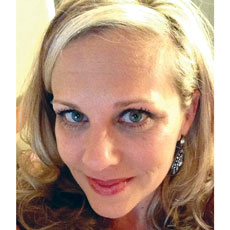
To say skilled nursing facilities have come a long way would be, well, surprisingly refreshing. Public opinion polls show there is still a wide-spread misunderstanding of what SNFs do, how they are paid for what they do, and why it is so important to preserve the setting.
Healthcare reform still fails to recognize the SNF as a leader in healthcare provisions. In my 11-plus years in long-term care I’ve seen first-hand the supply and demand effects on operations and planning; the regulatory and reimbursement impacts on provision of services; and the industry’s fight to remain a legitimate provider in the continuum of care. Yet when I reflect on the many years past, a smile creeps across my face, along with a few giggles and then a triumphant swelling of my chest, and finally even tears.
You see, our industry has not only “survived” the last decade, we have proven over and over to be the most resilient, forward-thinking, adaptive and (oops) sometimes financially successful provider in the scheme of healthcare. Why is that? It’s because we are the Triple Threat of Healthcare! We provide 24-hour nursing care, structured but not rigid routines, and rehabilitation services to rival all other settings.
Threat One is our 24-hour nursing care. Surviving SNF providers have invested in growing skill sets and providing higher acuity level of interventions. SNFs that plan to survive the next decade have trach care, in-house IVs, have access to specialized clinicians and products in the area of wound healing and provide chronic disease management education. ALL of this must be done to empower staff and residents to own healthcare outcomes to reduce relapse, ensure rehabilitation to prior level of function and beyond is possible and alleviating unnecessary re-hospitalizations and disruption in their path to recovery.
Threat Two is structured but not rigid routines. SNFs have focused on culture and being less institutional over the last 10 to 15 years. SNFs that have achieved this balance of flexibility in patient choice, providing expert care and maintaining consistency will continue to survive. A patient in the SNF setting can rely on similar daily routines resting assured that breakfast, lunch and dinner will be there, meds will be taken as prescribed and on time, and that they will have limited outside stressors and demands. That gives them time and energy to focus on the goals at hand: Stabilize, Learn and Rehabilitate!
And finally:
Threat Three is rehabilitation. Imagine having a “live-in” personal licensed therapist at your disposal to ensure you meet and exceed your goals of returning to your life before your medical decline or change in condition? No other setting can produce this level of access to highly trained rehabilitation professionals. SNFs have certainly been through the October Fiscal Year Tango for the last 5 years when it comes to reimbursement and therapy services. What did not change for SNFs that stayed true to their mission and provision of therapy services was the “WHY?” we provide these services in the first place. SNFs ARE a legitimate and arguably the most efficient setting to provide short or long-term rehabilitation services. SNFs who have embraced a “proactive” approach to rehabilitation rather than “reactive” approach will exist for the next decade. This approach proves over and over again that healthy, happy, satisfied and productive residents or short term rehab patients who re-enter the community ultimately is the desired outcome of SNFs and a legitimate solution to healthcare dollars well-spent.
Skilled Nursing Facilities will continue to survive and thrive and meet the needs of our most precious population by being a Triple Threat. I believe it is what Nexion calls the “6th C or Consistency” that will be the common theme for those who succeed. Being reactive and rash and just plain running scared will get us all…somewhere…but not where we need to be. At the end of the day remembering the “WHY?” will keep us calm, cool and collected and ultimately CONSISTANT! Who can argue with that?
Tara Roberts, PT, is the corporate director of rehabilitation and wound care services at Nexion Health Management, Inc.




